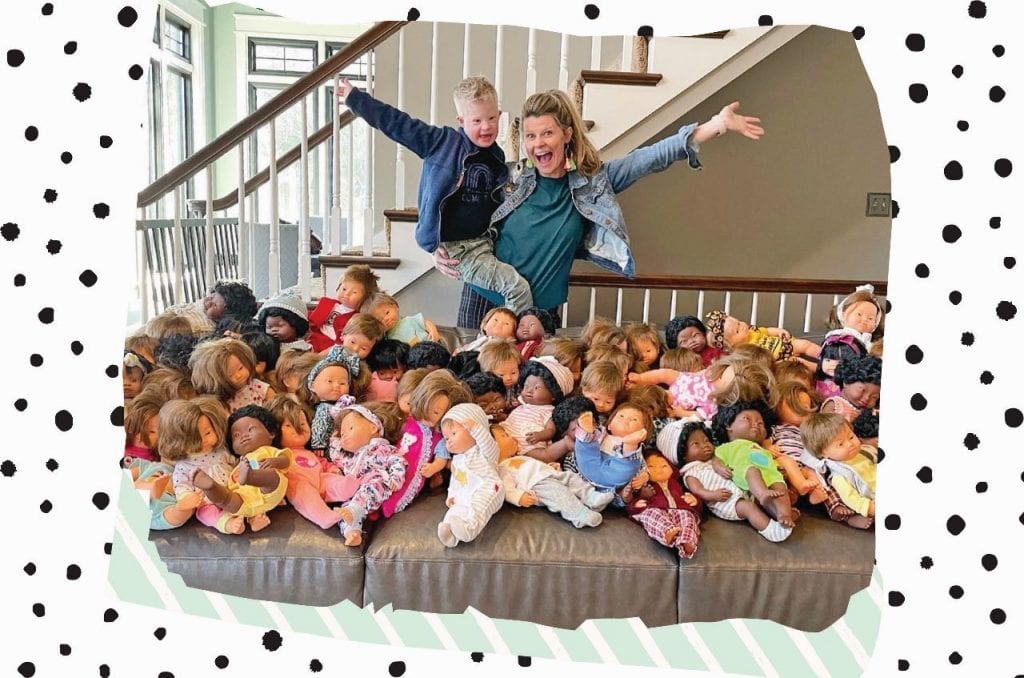Childhood can be full of situations when it’s tough to feel included, especially for kids with health or physical challenges. Rockwood School District curriculum facilitator Paige Carlson’s son Cooper has Down syndrome, and when she witnessed how much he loved a new doll that looked like him, she created a ‘Dolls Like Me’ fundraiser to help other children learn about inclusiveness.
“Cooper received the toy for Christmas, and it was so wonderful to see his reaction,” Carlson says. “My other son and daughter really were touched by it, too. It made me think of times when their friends had asked, ‘Why does your brother’s face look different?’ As the parent of a child with Down’s, I decided I could help normalize the situation for other kids in the school district.”
Carlson researched toy manufacturers and launched a GoFundMe page that raised nearly $4,000 to provide dolls for classrooms in the district. She ordered ones with hearing aids, eye patches and external feeding tubes as well as those with Down syndrome, and she hopes to purchase dolls with foot orthotics as well. Accessories can be added to customize the dolls to students’ particular situations.
“When kids see a toy that resembles them, it makes them feel important, respected and a part of the community,” Carlson explains. “Play is one of the most effective ways to help children learn because it encourages healthy questions instead of hurtful ones. Even the youngest learners can be exposed to positive lessons about inclusiveness.”
When Carlson donates dolls, she includes a ‘social story’ about each to help teachers incorporate them into everyday lessons. Compassionate, age-appropriate language is used to help educators talk about Down’s or explain the function of a hearing aid or feeding tube.
Carlson says the response to her program has been incredibly positive. “Kids love the dolls, and teachers really appreciate having a visual that makes discussions easy, fun and upbeat,” she says. “Parents have reached out to me and said things like, ‘My child has a hearing aid, and it has meant so much for her to see other kids learning about it in a positive way.’”
Carlson explains that when a child has health or physical challenges, the parents often are counseled not to form high expectations, but that doesn’t need to be the case. “After my son was born, I thought about what I’d been told, and I researched his condition,” she says. “Instead of limiting him, I decided to see him as being full of potential.” Since launching the project, she has received requests to present to teachers and students, and she enjoys spreading the message that the challenges everyone faces can actually be a unifying factor.
Until her own son was born, Carlson says she wasn’t fully aware of the importance of inclusiveness. “It literally affects everyone across school and family settings,” she says. “I feel that if we believe in kids and show them what kindness means, they will believe in themselves. The dolls are a way to teach children of all abilities about being more accepting and compassionate toward everyone.”
Pictured at top: Paige Carlson and son Cooper
